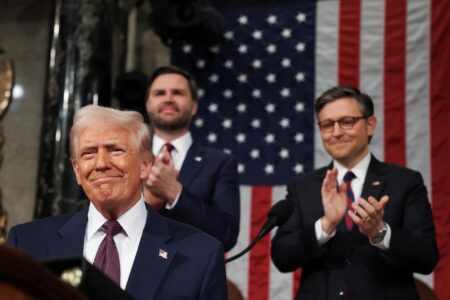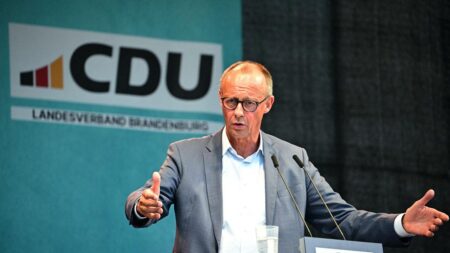As the UK braces for the reimposition of tariffs on steel and aluminum under the Trump administration, industry leaders express concern over potential market disruptions. Government officials are strategizing to mitigate economic fallout while seeking new trade partnerships.
Browsing: political analysis
In a significant development, the White House announced that a peace deal for Ukraine is closer than ever as talks between former President Trump and President Putin loom. This marks a pivotal moment in ongoing diplomatic efforts to resolve the conflict.
Canada is poised for a leadership change as a new prime minister will soon be appointed. Crucial issues such as climate policy, healthcare, and economic recovery dominate the political landscape. Stay informed on the potential implications for Canadians.
In the wake of China’s 2025 Two Sessions, a leading expert on Brazil-China relations provides insights into the implications for bilateral ties. The discussions highlight key economic initiatives and cooperation strategies that may reshape the partnership.
The recent tariff rebuff highlights ongoing tensions in Australia’s handling of relations with the Trump administration. This pivotal moment fuels debates on the government’s trade strategies and diplomatic approach as the international landscape shifts.
In a bold move, German leader Merz is pushing to enshrine economic policies into the constitution, raising concerns about potential long-term implications for Germany’s financial stability. Critics argue this approach could solidify a path toward economic decline.
Japan is navigating uncertainty as recent U.S. policy shifts prompt both concern and caution. With an eye on regional stability and economic ties, Tokyo is reassessing its strategies while bracing for potential challenges ahead.
China has issued a stern warning to the United States against any attempts at containment, particularly in light of the potential for Donald Trump’s second term to reshape diplomatic relations. Tensions rise as both nations navigate a complex geopolitical landscape.
In a recent move, Trump has paused certain tariffs on imports from Mexico and Canada, impacting various goods. Exemptions primarily include critical materials for manufacturing. Analysts speculate on potential trade negotiations and future tariff adjustments.
In a recent statement reported by Bloomberg, U.S. official Bessent emphasized that the Biden administration will not hesitate to impose sanctions on Russia and Iran. The commitment underscores ongoing efforts to address aggressive behaviors from both nations.
Australia’s Foreign Minister has voiced concerns that Donald Trump‚Äôs second term is proving to be even more disruptive than his first. This assessment reflects growing international apprehension over Trump’s evolving foreign policy and domestic decisions.
Germany is reassessing its diplomatic relationship with the United States following a recent clash between Ukrainian President Zelenskyy and former President Trump. The tensions highlight the complexities of international alliances as Europe navigates geopolitical challenges.
Javier Milei’s recent visit to Washington underscores his commitment to promoting freer trade between the U.S. and Argentina. Such a shift could enhance economic ties, boost exports, and foster investment, potentially benefiting both nations’ economies.
In U.S. News & World Report, seasoned negotiator emphasizes the need for a more strategic approach in dealings with Russia. Drawing from past experiences, the article critiques Trump’s tactics, arguing that effective diplomacy requires nuance and patience.
Following his election victory, Friedrich Merz faces the challenge of uniting Germany’s fractured political landscape while asserting strong leadership in Europe. Analysts at Chatham House examine whether he can navigate these demanding responsibilities effectively.
Doug Ford has secured re-election as Ontario’s Premier in a contentious vote framed as a battle against the influence of Donald Trump. This victory emphasizes Ford’s appeal amid rising concerns over populism and its impact on provincial policy.
Germany‚Äôs chancellor-in-waiting emphasizes the need for “real” independence from US influence, advocating for a more autonomous foreign policy. As global dynamics shift, questions arise about the feasibility of this vision and its implications for transatlantic relations.
Germany’s recent election signals a significant shift in its political landscape, with major implications for the EU. Key takeaways include a coalition government that emphasizes climate action and social reforms, potentially altering Germany’s leadership role in Europe.
In the wake of shifting geopolitical dynamics, several books explore the complex relationship between Russia, Ukraine, and the global order during Donald Trump’s presidency. These texts provide crucial insights into diplomacy, conflict, and power shifts in an evolving landscape.
Germany’s far-right AfD and the Left party have secured sufficient seats to impede amendments to the country’s debt brake, a fiscal rule that limits public borrowing. This development highlights the ongoing political divisions impacting budgetary reforms in Germany.




















